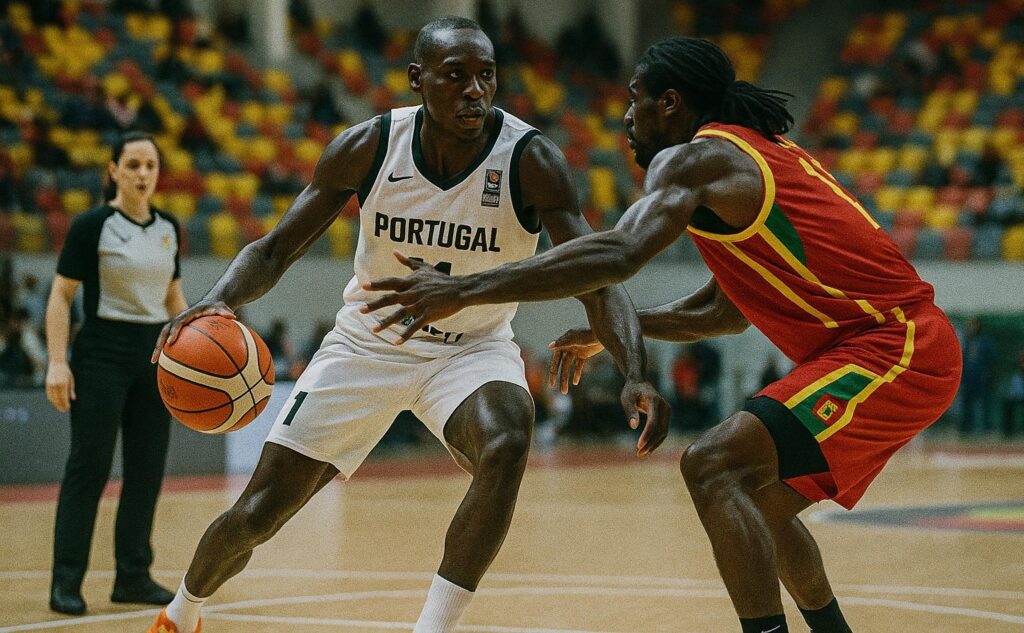AfroBasket 2025 Group C high stakes
When the Arena do Kilamba lights come up on Tuesday night, South Sudan and Libya will meet knowing that defeat would almost certainly send them to the tournament’s margins, while victory keeps a quarter-final dream flickering in this unpredictable AfroBasket 2025 campaign.
Both sides dropped their openers, South Sudan falling 88–80 to a revitalised Guinea, Libya suffering an 85–53 lesson from hosts Angola. With only three preliminary games, Group C offers little room for early mistakes, and coaches are preaching urgency as loudly as any tactic.
The format sends group winners straight to the last eight, while second and third must survive a knockout play-in. Bottom teams pack for home. That arithmetic has transformed tomorrow’s fixture into something closer to an elimination bout than a routine second match-day meeting.
South Sudan’s meteoric rise continues
South Sudan only joined FIBA in 2013, yet the Bright Stars already boast a World Cup appearance and sit 33rd globally. Coach Royal Ivey, temporarily released from NBA duties, says the programme’s acceleration is powered by diaspora talent and a unifying ambition to “give youngsters heroes”.
Against Guinea, that momentum flickered but never fully illuminated. Nuni Omot poured in 22 points yet lamented post-game that South Sudan “arrived relaxed”. Jo Lual-Acuil’s ten rebounds and Kendale McCullum’s six assists underlined depth, but defensive rotations misfired, conceding the most points to a continental rival since 2021.
Ivey responded with a two-hour video session focusing on transition defence and closing out shooters. “We cannot wait to be punched,” he told reporters in Luanda. “Libya will sense weakness if we hesitate.” His measured but firm tone suggested a side determined to learn instantly.
Libya aims to reboot reputation
The North African side arrived amid modest expectations, ranked 110th by FIBA and absent from the competition for twelve years. Yet coach Fathi Mohamed insists growth is possible. “Basketball is rebuilding at home,” he said, pointing to a new league backed by Tripoli’s private investors.
Angola’s full-court pressure rattled Libya into 24 turnovers, but pockets of promise surfaced through forward Mohamed Hadi’s high-post passing and teenager Abdul Baset’s fearless drives. Assistant coach Ahmed El-Khalil believes reducing errors by even “eight possessions” could swing momentum against a younger, faster South Sudan outfit.
Key match-ups and strategies
Much will hinge on the backcourt duel between McCullum and Libyan captain Mohamed Youssef. McCullum’s quick hands produce steals that ignite fast breaks; Youssef prefers a measured tempo, calling high screens to release shooters. Whichever guard dictates pace could decide whether the score climbs or crawls.
Inside, Lual-Acuil faces veteran center Mohamed Malek, whose bruising style contrasts with the South Sudanese’s fluid Pick-and-Roll finishes. Rebounding margins have haunted Libya; conceding second-chance points against Angola turned an even first quarter into a runaway. Boxing out will therefore carry near existential weight for them.
Both benches could tip the scales. South Sudan forward Kuany Kuany supplies instant spacing, while Libyan reserve guard Khaled Boulahia launches threes at a 40-percent clip. With fatigue mounting in the compressed schedule, coaching staffs may gamble earlier on their second units to protect starters.
Implications reach beyond Luanda
For South Sudan, progress in Angola doubles as preparation for February’s Olympic qualifying tournament. Each additional AfroBasket game tests schemes under genuine pressure, something practice cannot replicate. Federation president Luol Deng argues a consistent continental presence “keeps investors interested and inspires boys and girls back home”.
Libya, meanwhile, views every quarter as a showcase to revive domestic enthusiasm. The country’s football obsession leaves little bandwidth for other sports, yet a surprise run could unlock state funding delayed by years of political volatility. “Success stories travel faster than budgets,” laughs sports economist Salma Idris.
Tip-off predictions and atmosphere
The Luanda crowd embraced South Sudan’s free-flowing style despite their loss, and organisers expect another lively showing from local neutrals. Tickets sold out within hours, helped by a promotional partnership with an Angolan telecom giant offering data bonuses to attendees scanning QR codes at entrances.
Weather forecasts predict humid 28-degree conditions, favouring squads that rotate heavily. Medical staff from both camps confirmed hydration protocols have been tightened after several players cramped on opening day. The Confederation of African Basketball also adjusted arena air-conditioning, hoping to maintain a consistent court temperature.
Tip-off arrives at 19:00 local time. Small margins, heightened stakes and contrasting styles promise a contest worthy of prime time. Whether it ends with South Sudan’s surge staying alive or Libya scripting a seismic upset, Group C’s storyline will remain gloriously unresolved for another round.
Beyond results, the meeting offers another data point in Africa’s fast-evolving basketball map, where emerging programmes destabilise traditional hierarchies. Scouts from European clubs confirmed they will monitor the fixture, hunting undervalued talent that often proves decisive in second-tier continental leagues and summer showcases.


